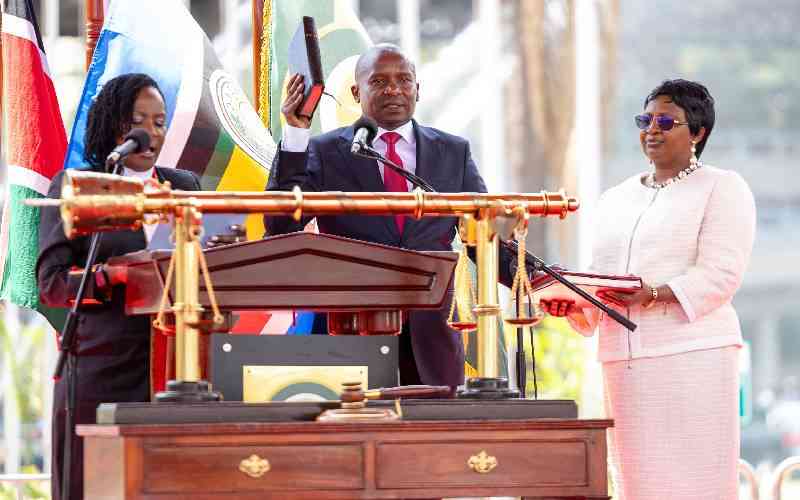
For someone who taught law, Deputy President Kithure Kindiki left his last job under a dark cloud. Under his watch dozens of Kenyans have reportedly been abducted and killed, some allegedly by the state. According to credible news reports, critics of government officials routinely got illegally tracked using mobile signals and detained incommunicado. All these were in direct contravention of President William Ruto's promise to end extra-judicial killings by government agents and the use of the police and justice system to settle political scores. Lastly, Kindiki infamously failed to end banditry in Baringo and West Pokot.
That is the record that Kindiki brings with him to the Deputy Presidency. Now, it's true that the role comes with little power. His main job is to stay alive and be ready to step in should the position of president become vacant. However, it's also true that as a constitutionally-protected office the Deputy Presidency comes with significant agenda setting powers and political influence. President Ruto might also find it useful to assign Kindiki specific administrative roles.